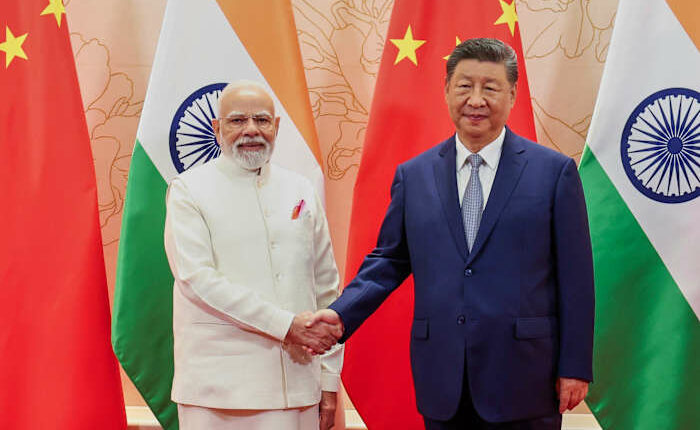Share this @internewscast.com

TIANJIN – On Sunday, Chinese leader Xi Jinping and Indian Prime Minister Narendra Modi expressed their commitment to addressing border disputes and enhancing cooperation, prior to the commencement of a regional summit in Tianjin.
Modi’s visit to China marks his first since bilateral relations worsened following the deadly border conflicts between Chinese and Indian troops in 2020. The visit coincides with India’s participation in the Shanghai Cooperation Organization, a regional group focused on politics, economics, and security, founded by China.
In his opening statement, Modi highlighted that ties with China have progressed in “a meaningful direction,” and noted “a peaceful environment at the borders after disengagement.”
Xi, as reported by state broadcaster CCTV, expressed his hope that the Tianjin meeting will “further elevate” and foster the “sustained, healthy and stable development of bilateral relations.”
Xi emphasized that the border issue should not overshadow the broader China-India relationship, suggesting that economic development should take precedence for both nations.
He stated, “As long as they stay committed to the overarching goal of being partners, not rivals, and offering development opportunities, not threats, the relationship between China and India will thrive and proceed steadily.”
Russian leader Vladimir Putin, who arrived in Tianjin on Sunday, is also due to meet with both leaders in the coming days.
Earlier in August, China’s top diplomat Wang Yi flew to New Delhi, as the two sides announced their rapprochement. Both governments pledged to restart border talks, and resume issuing visas and direct flights.
Wang’s visit coincided with U.S. President Donald Trump’s decision to impose 50% tariffs on India over its purchase of Russian oil, but Delhi’s process of rebuilding ties with Beijing had been in the works for months.
China and India this year have increased official visits and discussed easing some restrictions on trade and the movement of people across the border. In June, Beijing allowed pilgrims from India to visit holy sites in Tibet.
___
AP senior videojournalist Rishi Lekhi contributed to this report from New Delhi.
Copyright 2025 The Associated Press. All rights reserved. This material may not be published, broadcast, rewritten or redistributed without permission.








